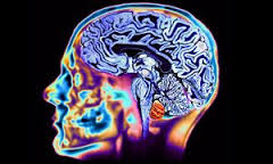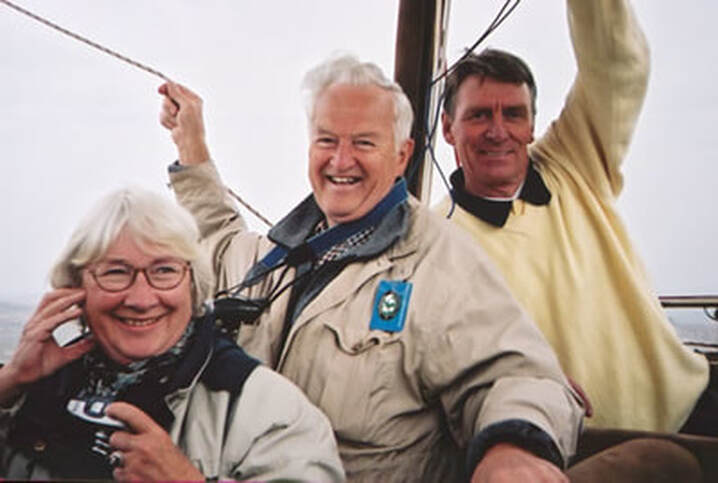
 I recently read an article posted in Knowable Magazine by Ramin Skibba who questioned Psycholinguist Mark Antoniou about how a second language can boost the brain. This article outlined the benefits of learning a language through immersion, online learning and face to face individual lessons. It documents conducted studies which resulted in showing that second language acquisition learners have improved attentional switching, increased gray matter density and volume and increased neural pathways. This is an indication of a healthier brain! I have included the link below. He describes advantages which include improvements in executive function, which is the ability to direct and manage your attention. In his article he states "Because language-learning and use is so complex — arguably the most complex behavior we human beings engage in — it involves many levels. You have speech sounds, syllables, words, grammar, sentences, syntax. There’s so much going on; it really is a workout for a wide brain network. And those areas of the brain overlap with the ones in which aging adult brains show decline or neurological pathological disease. As a result, we argue that learning a second language would be an optimal activity to promote healthy aging." https://knowablemagazine.org/article/mind/2018/how-second-language-can-boost-brain
0 Comments
As in every area of your life, setting goals can help propel you forward in your language journey so that you will achieve your goal. Goal setting is a powerful process for thinking about your ideal future, and for motivating yourself to turn your vision of this future in to reality. "Goals are new, forward moving objectives. They magnetise you toward them." Mark Victor Hansen. "Goals transform insurmountable mountains into walk-able hills." (author unknown) So how to set goals for your new language: For this to be effective, you need to set goals on a number of levels: 1- Firstly, create your "big picture" Why do you want to speak a new language? The more specific and emotional this goal is the more effective it will be. As many of you know, my goal for Russian is sitting at my brother in law's kitchen table and understanding all his stories (yes, we are drinking some vodka!) Another goal may be to be in a Thai market bargaining with the sellers in Thai, or wine tasting in the south of France with a French winemaker. Whatever your goal, you need to imagine yourself using your language fluently and it needs to make you smile!!! Get excited about achieving it. 2- Secondly, break this goal into smaller milestones. You may want to use VLLC certificated to do this or a specific vocabulary target, e.g. to reach this goal I first need to complete Certificate II (social proficiency - about 1500 words), then Certificate III (basic vocational proficiency - about 2500 words). Set some time goals as well. 3- Thirdly, break this down into smaller and smaller monthly and weekly targets that you must hit in order to reach your main goal e.g. spend 30 minutes every day on my language; keep up top date with my homework - do it straight after my tutorial; meet a language buddy; aim to finish a Certificate II in 9 months means I need to complete an online lesson each week. Plan how and when you will do your weekly language study in as much detail as you can.  Finally, once you have your goal and plan of attack, it becomes a day to day journey. Enjoy hitting the little milestones - reward yourself - this provides real motivation. Remember that "The journey of a thousand miles starts with a single step" Lao Tzu
Learning a language for some is easy, and yet for others, it is close to impossible. However, much about learning a language is in the mind, and we must remember that our brain is a powerful thing. The best way to get to grips with learning a language fast, is to have a general idea of how your subconscious works and how we learn in different ways. Children are the best example of how the subconscious mind helps learn a language. Children who grow up in households, or just countries where more than one language is spoken, become bi or multi-lingual very quickly. They are absorbed in the language through the constant repetition of words, phrases and even mannerisms, allowing the brain and mind to soak up the language while almost resting. There is no forced “you will learn this” when it comes to children, no learning grammar, and this means the child is confident in learning the language and feels confident in speaking it. The mind plays tricks on us all the time, and for many, overcoming the fear of speaking a language is one of the greatest challenges. However, the childlike approach to using the mind, especially a more subconscious mind technique which uses repetition, is one of the best language learning methods. Vocational Language Learning Centre uses this technique and has had much success with teaching many students a new language. Once one has learned to relax the mind and accepted it is not a race to learn the language fast, you will become more receptive. Being more receptive means you will learn, and may even learn more quickly as your confidence grows. Becoming socially interactive through language also improves the learning experience. Confidence grows and the immersion in conversation prepares the mind to both listen and speak in a natural, if somewhat daunting situation. Many people talk about mind maps when it comes to learning a language. Bringing together the lexicon and syntax is in many ways what learning a language is. It is a little like a jigsaw puzzle and once one learns what goes with which, things fall into place. This way of learning is less subconscious and more structured and logical. It basically creates a map for the language learner to follow. It does work and is very much a more deliberate way of teaching the mind to work, or think in a certain way. Our human brains and our minds are more than capable of learning another language or multiple languages. There is not many people who are unable to learn (unless there is a medical learning difficulty), some just find it more difficult than others, especially those who feel pressured into speaking or using a language. Of course, there are now many shortcuts to learning a language such as translation apps etc but in reality, nothing beats really learning the language and actually communicating to someone in their native tongue. Language stimulates the brain and the challenge in applying the mind should be embraced. For many, a combination of understanding, applying and using rules along with the social use of language, will be how they eventually learn. The mind is a very powerful tool, and in a nutshell, it needs a combination of stimulation and relaxation to deliver the results you are looking for. When you understand how best your mind works, learning a language is merely a matter of time and perhaps placing mind over matter.
I recently read an article from The Language Nerds, who post on social media. The facts I have listed are their results from a recent study by Pellegrino, Coupé, and Marco. This study is about how linguists measure the speed of languages by how many syllables are articulated per second or per minute. This study doesn't include data from all the languages of the world, but this is what they have discovered so far. I have included the link to the article at the bottom of this blog. Japanese is the fastest recording language. It has a rate of 7.84 syllables per second! Spanish is right behind Japanese and is nearly as fast with a rate of 7.82 syllables per second. French lags just a little far behind with a rate of 7.18 syllables per second. Italian is relatively slower than Spanish and French with a rate of 6.99 syllables per second. English is among the slower languages with a rate of 6.19 syllables per second. Before last is German with a speed of 5.97 syllables per second. Mandarin is the slowest recorded language with a rate as low as 5.18 syllables per second. I actually would have presumed that the Asian languages were faster but apparently, languages with either a complex tone (4 or more tones), or complex consonant clusters, tend to be slower while languages with no tone, or a very simple tone system tend to be faster. Reference: https://thelanguagenerds.com/list-of-the-fastest-spoken-languages-in-the-world/
|
AboutThese blogs are about learning a foreign language and how utilising that skill can help to keep your mind active and assist with your cognitive function. Archives
July 2024
Categories |









 RSS Feed
RSS Feed

